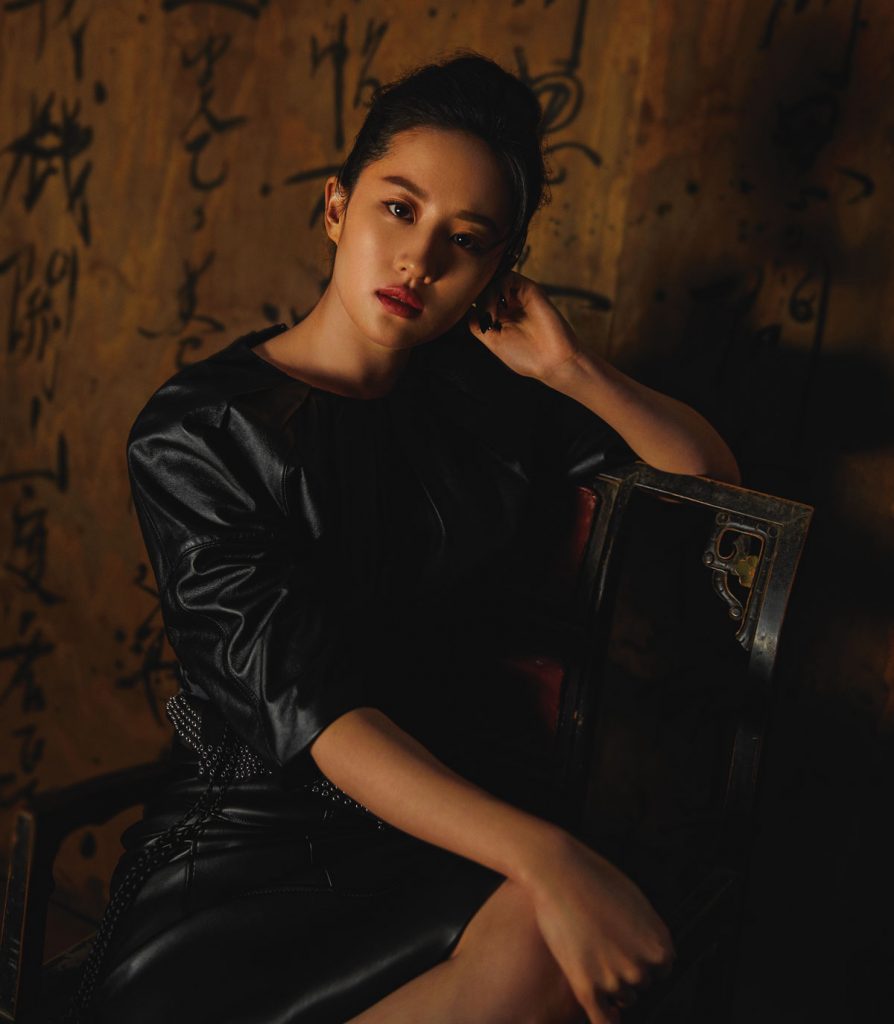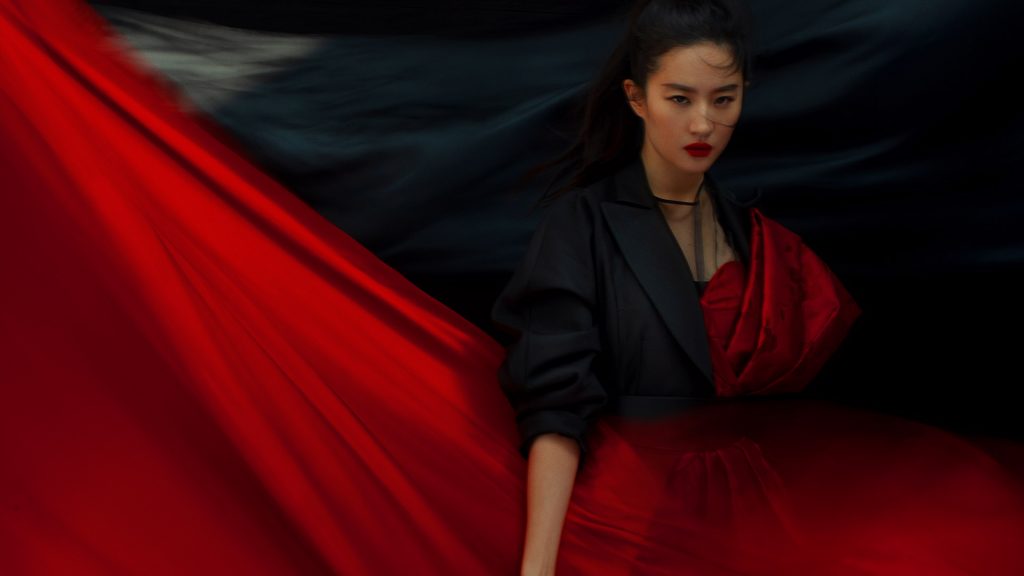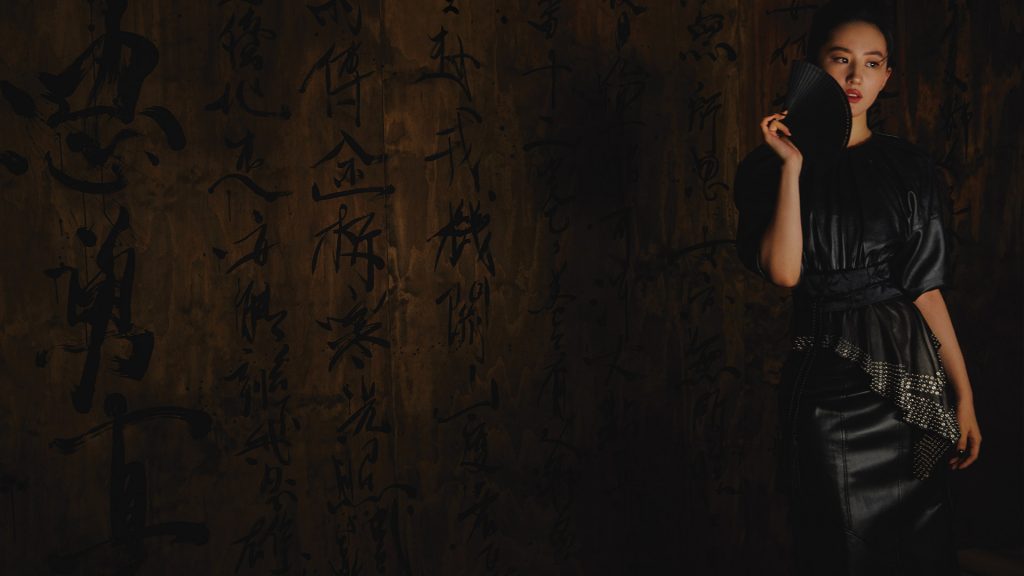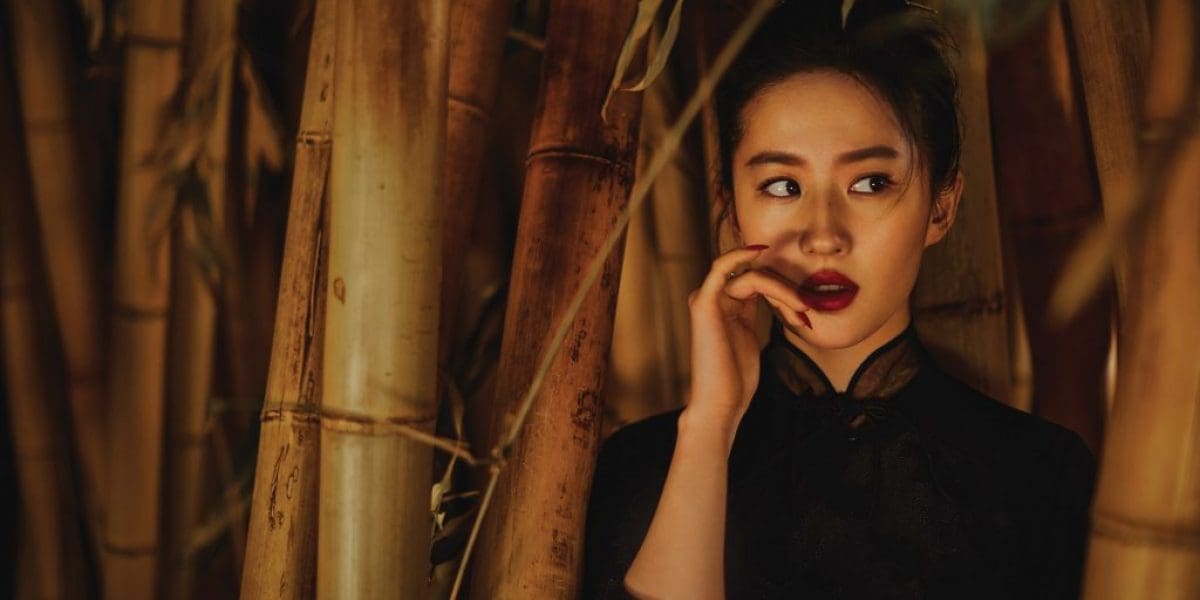Mulan: Timeless Iconic
Mulan is one of the most iconic figures of Ancient China. First introduced to the Northern Dynasties in the 6th century poem, Ballad of Mulan, and later as the titular character in a 1998 Disney animated film, the daughter-turned-honoured-warrior has stood the test of time. Spirited, determined and skilled on the battlefield, Mulan is a fearless character to portray. So it must have been important for Disney, when casting for their latest live-action reboot of the timeless classic, to choose an actor who exhibits all of these core values.
That actor is Liu Yifei, whose qualities and fearless nature cemented her as a perfect choice for the character of Mulan. She also did 90 percent of her own stunts for the film too. As the film is quite action packed, you only have to look at her performance and you’ll be amazed by the dedication she gives to the characters.
Born in Hubei in 1987 to a French language teacher and a stage performer, Yifei grew up with a passion for acting. Yifei started modelling at age eight and was accepted into the Performance Institute of Beijing at 15. Her first starring role was in the Chinese TV series, The Story of a Noble Family and in 2003, her first big screen debut was in the 2004 Taiwanese film, Love of May, where she garnered wide acclaim for her performance. She has also starred next to Jackie Chan in the 2008 kung fu film, The Forbidden Kingdom, Nicholas Cage and Hayden Christensen in 2014 in, Outcast and now, alongside Donnie Yen and Jet Li, she will be transformed into Mulan.
Directed by Kiwi, Niki Caro, Mulan will be in cinemas later this year and is set to be an action-packed retelling of the timeless classic.
Photos by Chen Man

Why do think the legend of Mulan has lasted and is still relevant today?
First of all, it’s a really dramatic and epic story—a girl disguised as a man in the army. For me, it’s that I’m really curious about what she’s been through and beyond that legendary description, what kind of human being she is.
Tell us about your audition process when you were trying to get the role.
I got to L.A. and then they took me straight to the audition studio. I remember how I prepared myself. I drank lots of coffee to get over jet lag and tried to meditate. I tried to be focused as we were doing four scenes.
It was in one small room, and I had to pretend I had just finished riding a horse. There was a scene with the witch, and I remember that there was also a scene where Mulan had to look dirty, so the casting director put dirt on my face, with my eyeshadow. It was interesting!
What aspects of Mulan do you admire the most as a character?
Mulan never imagined all those experiences that would come after she made her decision, but when she’s in those circumstances, I admire how she handles them, and how she still puts love in first place, and she learns, even from hatred and conflict, that what she feels and what drives her is the love.
How would you describe Mulan—the one that we see on screen that you helped create?
We see many sides of her, beyond the Ballad of Mulan. We see her as a human being; as a girl; as a young woman. Everybody admires her as a warrior but is there a fragile side to her? Will she sometimes hesitate or be afraid, but still choose to carry on? Yes, and we see that.

Mulan is brave, loyal, and true. In what ways will that empower girls and women who are watching it?
I hope they will not focus on just what they get in life, but will trust their instincts. Be true to themselves for sure, because they are the only ones who can surprise themselves in their lives.
Can you tell us about how important that was to make sure that Mulan’s vulnerability came across?
I think vulnerability and strength is a mixture of emotion. It’s not one or the other. As an actress, you need to put both things together and see how you can approach them. This is the hard part because it’s not like in one scene she’s 100 percent weak and vulnerable, and then the next day she’s like a warrior. It’s always a complex moment.
What was like working with Donnie Yen, Gong Li and Jet Li?
I admire Donnie’s work, not just as a Kung Fu superstar. He’s also really good at performing and acting. And he’s a really warm guy.
Gong Li is like the queen of movies. So, people think I’m so lucky to have the opportunity to work with her, and it is a great opportunity. She is as good in person as the character she plays on screen. You don’t think that she’s a superstar when you talk to her. She’s really real.
You have a lot of action scenes in this movie. How did you train for that?
This time we had to train differently. On some projects, you only train with a sword or only martial arts. But this time they really wanted to get my body prepared overall, so I did basic physical training. It was really helpful but tough.
Every day in the morning, the first thing I did was work out two hours. And then I had to change for riding instruction for another hour. And then maybe two hours again for martial arts. So one day is five to six hours of physical work to prepare for the part.

Filmmakers have researched the time of Mulan. How important was it to make sure the cultural references were correct?
I think it is important, but the Ballad of Mulan is already there. Nothing could change that. So as long as what we are feeling is true and helps the audience believe, it’s responsible.
Of course, they did a lot of research. They don’t want it to be a specific time, but even nowadays, we share a way of living and a certain logic with ancient times. But filmmakers made sure everything, like the weaving machine, for example, is exactly right.
When you finally embraced Mulan, did that change the way you moved or acted?
It was more of an inner moment for me. It’s Mulan’s inner moment when she decides to rip off her disguise. She doesn’t want it anymore, so it all comes from there, for sure.
But I think it also means that she is breaking out of boundaries. It’s that simple. She’s realised that she deserves the freedom of being a woman and who she wants to be.
What was it like working with director Niki Caro?
Niki is perfect, I will say. Her personality just shines. I realise the amount of work that a director takes on. I can imagine that she was tired and stressed sometimes, but whenever she showed up, she was so light and happy that she made everybody feel confident.
I’m a fan of hers. When I saw North Country, I was a teenager, but I still was touched by the actors’ performances and by the end goal they achieved.
What was her directing style with you?
I think she respects every actor and helps them to create the character. She will ask what you want, but she will always tell you if she wants something. She is very positive. I noticed that she likes a real and natural performance. Less is more.
What did you do together to help find the character of Mulan?
We didn’t say one thing or another, but I would sometimes ask Niki if I could freestyle. And she really supported me that way.
I could take some takes and go wherever I wanted. I could take my time for my lines. Or even I could say something that was not in the script, and she would be okay with it. I’m just thankful for that.
What do you hope audiences experience when they see the movie? What do you want them to think?
I will respect whatever opinion they give because individuals all feel differently. But if there’s some moment in the movie that touches them, even for some reason they don’t know, I will think that we did something good.
And I hope that they open up and dream well about themselves, which is a theme in this movie, too.
